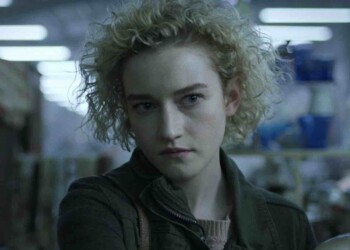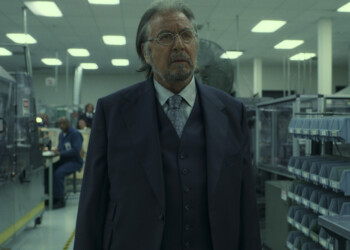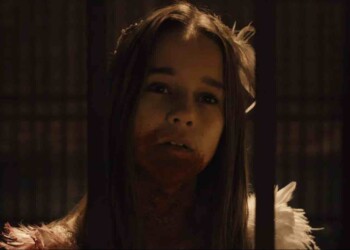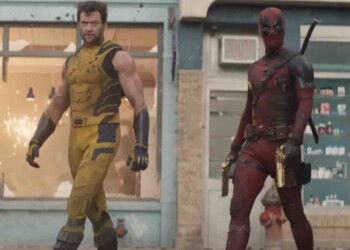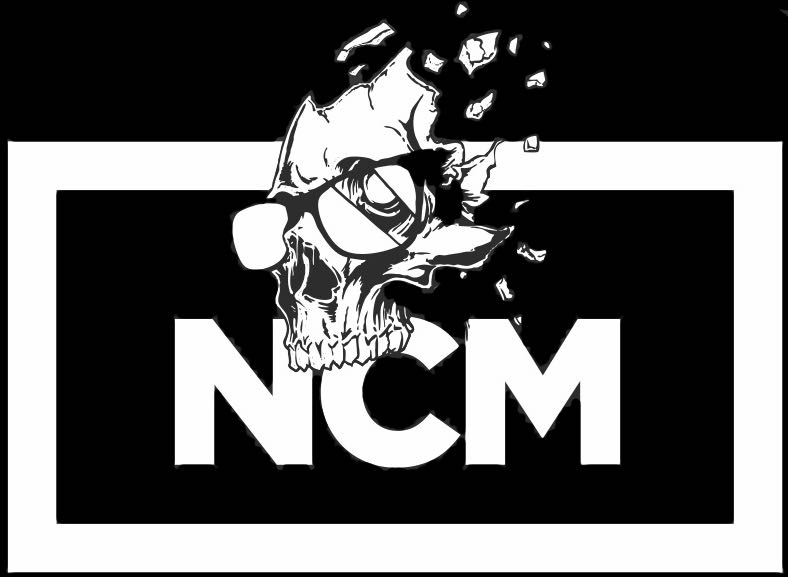In part one of our exclusive two part interview with Breaking Bad creator Vince Gilligan he explains how the concept of the show was as simple as taking a good guy and making him bad…
By Trevor Dueck — Staff Writer
Follow on Twitter @TrevDueck
“Technically, chemistry is the study of matter. But I prefer to see it as the study of change.”
“It is growth, then decay, then transformation.”
~ Walter White
It was the above high school chemistry speech Walt gave his students in season one of AMC’s hit show Breaking Bad that became foreshadowing for five seasons of insanity. Most of us who watched the final episode can probably move on with some closure, but it was hard to say goodbye to the characters we have grown to love, hate and admire. I won’t spoil the ending for those who have just started watching the show, all I will say is enjoy the journey and the late nights of intensive binge viewing. Feel free to find someone who has already watched it so you have someone to chat with for therapy.
It’s rather odd, that a show about a high school teacher who decided to cook the very addictive and destructive drug crystal meth, became such a cultural phenomenon. Who in their right mind came up with such a crazy and immoral concept? If I told you it came from a fellow nerd who likes to wear tweed sport coats…would you believe me?
When you look and listen to Breaking Bad creator Vince Gilligan you can’t help but realize that this guy does seem like the prototypical quiet type that probably has all kinds of sick and twisted ideas swimming around in his brain. You have to remember that he got his start on television writing for X-Files where he was paid to write about bizarre occurrences and sometimes morbid subject matter.
Just two days before the final episode of Bad, Vince Gilligan found himself back in Vancouver (the city X-Files was filmed in) and spoke to a sold out Theater of fans and TV buffs about everything that we ever wanted to know about his hit television show. What made the evening even cooler is that the talk was hosted by Damon Lindelof who was the executive producer and writer for another little television gem called Lost, and also has written and produced many movies like Star Trek, Star Trek: Into Darkness, Prometheus, World War Z, the list goes on.
Although Gilligan is not a big fan of superlatives, we did get to watch what he deemed one of his most favorite episodes to write and direct. The audience got to watch the season four finale called “Face Off.” Again this article isn’t being written to spoil anything for you, so if you know the episode I’m talking about, you can understand why it was truly one of the best installments of the series.
When Vince finally made his way to the stage he got a standing ovation and immediately sat down beside Lindelof and the fun began. Most of the questions came in advance from social media, two came from audience members who won a contest and some came from Lindelof himself. Nonetheless, the questions covered the entire gamut and produced some juicy answers from the man himself.
Most of us Breaking Bad geeks already know where the idea for the show originated from. It came from a fellow X-Files writer named Thomas Schnauz. Both Schnauz and Gilligan found themselves unemployed after the legendary sci-fi series ended its nine season run. One day Thomas and Vince were joking around on the phone about a solution to their financial problems, which would be to put a meth lab in an RV and drive around the country cooking meth and making money. The rest is television chemistry.
So how hard do you think a show with that sort of “out there” concept would be to sell to networks? You would think it would be a tough sell right? Vince explained how the pitching process unfolded.
Whatever TV show or movie you see that is good or bad, usually always has a story behind it that I guarantee you has a history of all the different people that said no to it. Obviously all it takes is the one right person at the right time to say yes. Having said that, I pitched a lot of ideas over the years both movies and TV that I thought were more immediately palatable and sellable that nobody said yes to. Yet when it came to sell the idea of Breaking Bad, with how out there it was, it really wasn’t that hard to sell.
That said, there were not too many places to sell it to. It was the TV industry in 2005 and there were only three potential buyers as we saw it, there was HBO, there was Showtime and there was FX. We didn’t even think about the broadcast networks because we just knew this show was too dark and it was kind of R rated, so to try and sell it to them would have been a waste of their time and a waste of our time.
We ultimately got passed on but very nicely by those three major networks that we pitched to and I thought the show was dead as a doornail. Then the AMC Network came along and my agent called me and said hey this thing you thought was dead, your Breaking Bad thing, I took the liberty of sending it off to the AMC Network, you know AMC? I was like, yeah I know it, it’s the channel that shows Porky’s Two over and over again. I asked why did you send it there? Why didn’t you just send it to the Food Network since it’s a show about cooking?
My agent said that they were looking to do original programming and they had this script for some little show called Mad Men. I didn’t know what it was all about at the time but we all know that it became an instant phenomenon and just a wonderful show. That was AMC’s first grand slam homerun at their first at bat. After that they decided to bring on Breaking Bad and so in hindsight selling the show was not that hard to sell so there was no real story of a hard fought victory.
Major kudos to AMC executives for seeing a potential hit and you have to wonder if people at HBO and Showtime were pulling their hair out every Sunday night. Hell, even host Damon Lindelof admitted that when he heard the show concept and he thought it had no chance of making it onto our television screens. You can understand why some people had a problem with the show’s content but the real stress began for Vince when he had to actually get behind the camera and start filming his pièce de résistance. Sure it was great to come up with a wonderful script and concept, but the reality sets in once a project is green lit and filming begins for the very first scene.
When we first started shooting on the very first day, I thought we weren’t going to make it, we were over scheduled and we were too ambitious. I was really worried about failing to meet the schedule on the very first day. But it was the sequence in the pilot where Walt is wearing the goofy white bullet proof vest and he is sitting in the back seat of the car and it is the scene where he first sees the meth bust and he lays eyes on Jesse Pinkman falling off the roof. We had to shoot that entire sequence in one day. The preamble between the guys Gomie and Hank talking to Walt in the car, the school bus going by, the DEA guys in the black Excursion, guys running and kicking the door in and there is Walt sitting by himself and watching Jesse Pinkman fall off the roof, it was a very long day.
I remember the very first shot of Gomie, Hank and Walt in the car before the bust went down and I was scared out of my mind. I had done some directing previously on other shows like a couple of episodes of the X-Files, but for this, I thought oh man I cannot fail or I could bring down this entire fledgling network. Okay that probably wouldn’t have happened but I would have been embarrassed and humiliated had we failed starting from the very first scene we shot.
Vince has said in many interviews that he didn’t think the show would go past the first season. Maybe that was his own paranoia, but although he was confident in the content he wasn’t sure if the public had an appetitive for what Vince and his team of writers were going to do with the character of Walter White. The funny thing is, Gilligan didn’t know exactly what they were going to do with Walt either.
We knew we wanted to take a good guy and change him into a bad guy. That was a solid plan and we abided by that for six years. That does not mean that I knew plot wise what was going to happen year after year or even moment-to-moment. I worked with six excellent writers and the best way we got to those moments was organically. It wasn’t through us going ‘wouldn’t it be cool if this happened.’ Our finest moments in the writer’s room were when we asked what does Walt want right now? what is his greatest hope? and what is his greatest fear? In the end, his entire journey was written flying by the seat of our pants.

